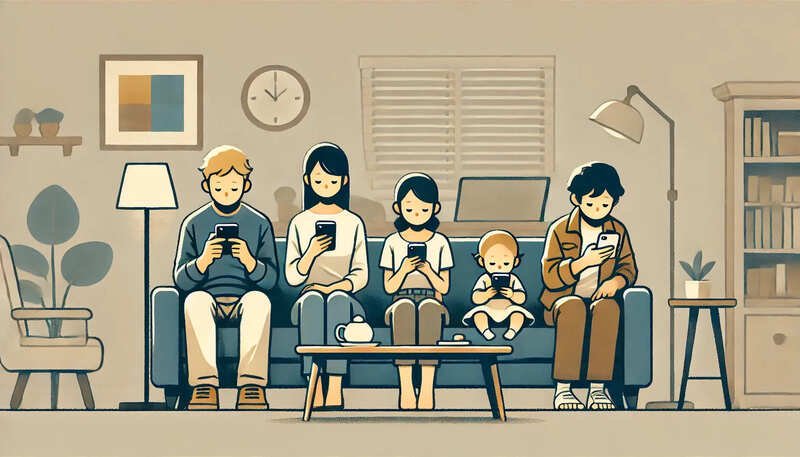Introduction: The Connection That Disconnects Us
In an era where we can interact with people across the world with just a few clicks, an intriguing question arises: are we truly more connected or more lonely? Social media has undoubtedly revolutionized the way we communicate, but at the same time, it raises concerns about its impact on our emotional well-being. This article explores how these platforms shape our relationships and sense of belonging.
Social Media: Bridges or Barriers?
Social media was designed to bring people closer together, enabling quick and convenient connections. Moreover, with the rise of platforms like Instagram, Facebook, and TikTok, sharing moments has become an essential part of daily life.
On the other hand, numerous studies show that excessive use of these platforms can lead to isolation. The feeling of “superficial connection” is common since virtual interactions often lack the depth of in-person relationships. Additionally, constant comparison with the “perfect lives” displayed online can intensify feelings of inadequacy.
The Benefits of Being Online
Before diving into the challenges, it’s important to recognize the positive aspects of social media:
1. Easy Communication
Whether to keep in touch with distant friends or participate in interest-based groups, social media allows us to connect with people who share our values and interests.
2. Access to Information
It is also a powerful tool for learning and staying informed. More often than not, it is the first place where we find news and updates.
3. Community Building
These platforms provide spaces for online communities where people with similar experiences support each other and share valuable information.
The Dark Side: When Connection Is Not Enough
Despite the benefits, however, the problems associated with social media use cannot be ignored:
1. Loneliness in the Digital Age
Studies indicate that people who spend too much time on social media report a greater sense of loneliness. For example, research from the University of Pittsburgh found that young adults who heavily use platforms like Facebook, Instagram, and Twitter are twice as likely to feel socially isolated compared to those who use them in moderation. In fact, this happens because online interactions do not replace the depth of face-to-face encounters.
2. The Danger of Comparison
The “perfect life” we see on social media can lead to unrealistic comparisons and feelings of inferiority. This phenomenon can trigger social anxiety disorder, which, in this context, refers to the fear of not meeting the expectations set by digital platforms. For instance, imagine posting a picture of a simple dinner and feeling “out of place” after seeing images of gourmet meals or exotic vacations. It’s like always trying to be on a stage of social approval, which can be exhausting.
According to a report published by CNN, 35% of girls worry about being tagged in unflattering photos on social media. These concerns can lead to increased social anxiety.
3. Lack of Authenticity
People commonly showcase only the best moments of their lives. This constant curation creates a distorted reality that affects both those who post and those who consume the content.
How to Find a Healthy Balance
To balance the benefits and challenges of social media, therefore, some strategies are essential:
1. Limit Your Online Time
Set daily limits for social media use. In this regard, apps like Android’s Digital Wellbeing or iOS’s Screen Time can help.
2. Prioritize Real-Life Connections
Meet up with friends in person whenever possible. A simple coffee with friends can be more valuable than hours of online conversations.
3. Reevaluate Your Content
Follow profiles that inspire you and avoid those that lead to comparison or dissatisfaction.
The Role of Social Media in the Future
Social media will continue to evolve, and it is up to us to adapt our relationship with it. The pursuit of more mindful usage is essential to ensure that these platforms serve as tools for genuine connection rather than isolation.
Conclusion
So, are we more connected or more lonely? The answer lies in balance. How have you been using social media? Are they bringing you closer to or pushing you away from the people who matter most in your life? Take a moment to observe how these relationships have changed and the impact on your well-being.
Social media has enormous potential to strengthen bonds, but when used excessively or in the wrong way, it can distance us from genuine connections. Finding a middle ground in using these platforms allows us to enjoy their benefits without getting lost in their challenges.
Posts Recomendados
Carregando recomendações...



